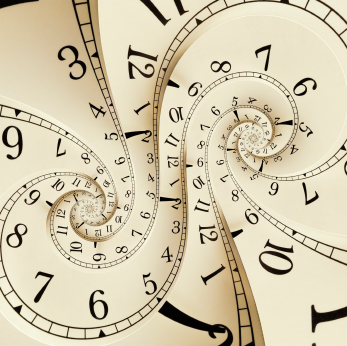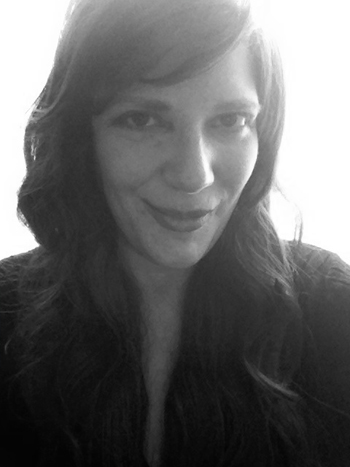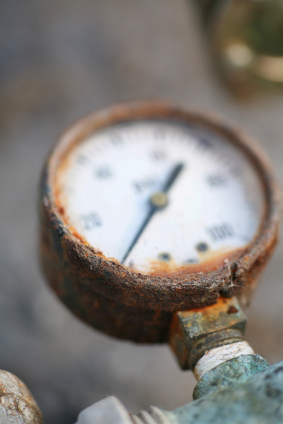Menopausal Symptoms? It’s Elementary!
Can you predict what perimenopause may be like? Believe it or not, it appears that certain past events throughout a woman’s reproductive life have more value than meets the eye. In fact, using questionnaire data collected from 290 peri- and postmenopausal women, researchers believe that they have found certain clues. For example, women who reported more severe physical symptoms during perimenopause experienced more severe physical symptoms during other times that their hormones were fluctuating:
- just before their menstrual period
- during pregnancy
- directly after giving birth
- during oral contraceptive use
The best predictors of menopausal pain and discomfort — achy muscles or joints, neck or head pain, lack of stamina, fatigue, low back ache, lack of concentration, bloating? The PMS experience! PMS with pain, lack of concentration and bloating appear to be the linked to the worst physical symptoms around the menopausal transition. And what about hot flashes and night sweats? It appears that most PMS symptoms (e.g. water retention, negative mood, concentration, cramps), fatigue, heartburn, headaches, backaches and hemorroids during the postpartum period, and physical effects of oral contraceptive use (e.g.headaches, bloating, tender breasts, nausea, aches, pains, cramps) are a harbinger of the worst vasomotor symptoms during perimenopause.
It’s important to keep in mind that other factors come into play during menopause, such as overall health, stress and attitudes towards aging. And as I’ve written time and again, all of these factors can influence the menopause experience. Past reproductive experience appears to account for up to 40% of how badly perimenopause may play out. Meanwhile, think back on your reproductive history. And start preparing now to deal with bothersome symptoms as they arise. It really is elementary!
(This study appears in the online edition of Menopause.)
Read More
Wednesday Bubble: Calling all hearts…
Truly, no better day than the day of ‘hearts’ to remind yourself that you are loved. And that you love others. Don’t have a sig other? Well, you likely have lots of significant others. Love thyself. That’s the V-Day mantra, one day early.
Read More
Marking the ‘pause
 Back in 2009 and 2010, I wrote about a marker for menopause — the antimüllerian hormone (AMH) — which theoretically can accurately predict when a woman will enter menopause within a margin of three to four years. AMH is first detected in the ovarian cells when a woman is 36 weeks pregnant and continues until preimenopause. More specifically, it correlates to immature follicles in the ovaries whose role it is to house mature eggs. The greater the number of these follicles, the more likely it is that a woman will conceive. This is why AMH disappears as a women enters menopause, and why it has been identified as a marker of ovarian aging. Researchers have also discovered that women who have AMH levels that are below average for their age are likely to enter menopause up to 10 years before the average age of most women, 52 years. The importance of this cannot be overstated; one of the goals of this blog is to help you prepare for menopause and the changes that accompanying it. Hence, being able to predict when menopause may start can help you address certain potential health issues related to declining estrogen before they become full blown, e.g., elevated cholesterol.
Back in 2009 and 2010, I wrote about a marker for menopause — the antimüllerian hormone (AMH) — which theoretically can accurately predict when a woman will enter menopause within a margin of three to four years. AMH is first detected in the ovarian cells when a woman is 36 weeks pregnant and continues until preimenopause. More specifically, it correlates to immature follicles in the ovaries whose role it is to house mature eggs. The greater the number of these follicles, the more likely it is that a woman will conceive. This is why AMH disappears as a women enters menopause, and why it has been identified as a marker of ovarian aging. Researchers have also discovered that women who have AMH levels that are below average for their age are likely to enter menopause up to 10 years before the average age of most women, 52 years. The importance of this cannot be overstated; one of the goals of this blog is to help you prepare for menopause and the changes that accompanying it. Hence, being able to predict when menopause may start can help you address certain potential health issues related to declining estrogen before they become full blown, e.g., elevated cholesterol.
The powers that be have recently defined two phases of the menopause transition; the early phase, in which menstruation becomes more variable and cycle length changes by 7 days or more, and the late phase, in which women miss two or more periods, experiencing at least one 60 day cycle and have elevated FSH hormone levels. These phases became the anchor for the AMH study because they allowed the researchers to weigh its potential as a marker over time. That’s exactly what they set out to do (you can find the study published in the latest issue of Menopause.)
Using a new assay testing kit that appears to be more sensitive than its predecessors, they selected 44 women from a pool of 595 whose blood samples were taken randomly over a six year period and measured AMH. It was important that these women met criteria that would allow their AMH to be accurately measured; these included being over age 40 and menstruating regularly when they first had blood drawn, or having regular then irregular periods, not taking any medication that might affect their menstrual cycles and providing ample number of samples (at least three) over a five year time period.
The findings? Roughly three years before women entered what is considered the late stage menopausal transition, AMH blood levels became virtually undetectable. Moreover, the proportion of women with undetectable AMH levels constantly increased, which supports the hypothesis that AMH levels below a certain point may predict progression into the late phase of the menopausal transition. Similarly, over the time course of the study, the percentage of women with low AMH levels increased by about 71% as they approached the late menopausal transition.
The numbers in the study were small so the results, while important, stil need to be borne out in larger sample sizes. But, it appears promising that AMH can detect menopause within three years, a healthy dose of reality that may ultimately prove important in disease prevention as we age.
Read MoreCancer can be hell. But you don’t have to go it alone. Words of wisdom by Elizabeth Alraune
Today’s guest post is written by Cancer Patient Health Advocate, Hypnotist, Intuitive, Healer and Speaker Elizabeth Alraune. Elizabeth was diagnosed and treated for ovarian cancer in 2012. And her story is a difficult one to read; now on the other side, Elizabeth shares that the aftermath can sometimes be worse than the cancer itself. Her ultimate goal is to help women understand what to expect and how to better prepare for the months that follow a diagnosis. Although every individual experiences cancer differently, there is a common theme that runs deep: cancer sucks the life out of ones soul. Those who are fortunate to get to the other side, through the mire and regain their lives are indeed, fortunate.
Please show Elizabeth some love…
After I was diagnosed with ovarian cancer last May, one of my biggest concerns was having enough money to get to the end of the year. I thought if I could make it until the treatments ended I would deal with other things when I got there. What I did not realize, or know, was that I wasn’t going to be the person who went into chemo treatments. I did not realize how much my brain would be affected by the chemo, how tired I would be, or how difficult it would be to do things.
In recent weeks I saw a woman talking about the effects of chemo. She said many are concerned about hair loss, but what they should be more concerned about is how they will cognitively be affected. It is something that wasn’t more than casually mentioned or addressed before or after treatment.
When I completed my chemo rounds the doctor told me chemo would likely stay in my body for 6-12 months. So now I have to heal from the chemo that healed me from the cancer.
Prior to diagnosis I was having symptoms that were keeping me from working as much as I would have liked. Once I had surgery (a hysterectomy) I was no longer working. Since I work for myself, it was a big concern, but one I had to put on hold as I tried to deal with what was – and what was coming.
Once finished with chemo, I started to feel less affected by the effects of treatment. I have begun to do whatever I can day-to-day. I don’t work full days, and the days that are more full tend to wipe me out for a couple after. The things that are intuitive in nature are easier to do, as being intuitive works well in the chemo-affected state. Things that require my left, logical brain are challenging my ability to wear my “business hat.”
Since I am not married, I have had to deal with much of my situation alone. My sister was around for treatment, at times, to be a support, but she lives in a different state. Thankfully I didn’t really need a full time caregiver. If I had needed one, I don’t know what I would have done.
There were some things that HAD to get done while I was undergoing treatment. Many of those things took forever to do, and were done at the last possible minute because it was difficult to focus and get motivated. And while these are terms you are familiar with, someone undergoing chemo often has an experience of them that is nothing like what you think it would be.
Now that I am on the other side and I am seeing all of this, I had a brilliant (smile) idea that I could take my experience with cancer hell and help others through theirs. It seemed to me that there really weren’t things “out there” that were like what I wanted to offer. It also seemed that the combination of factors that make me, me would be ideal to do the type of thing I am creating (and it uses my right, intuitive brain!)
I love to help people. I love to talk to people. I love coaching. I love hypnosis, and I used it while I was in treatment. I can understand what a person, and those around her, may be going through when treatment for cancer is involved. I can appreciate what the physical symptoms may be like as well as the anxiety and low points. I can appreciate how sometimes you want nothing more than to be “normal” and at other times want nothing more than to be left alone.
There were times I cried on the phone with a friend only to never talk to that friend again during chemo. I had friends who couldn’t/wouldn’t talk to me. I had people I reached out to who just plain ignored me. I slept a lot. I had several lows, and few highs.
There were so few I could talk to who could understand what I was going through. If I said I was tired, they would think they knew what I meant. But they didn’t have a clue. It would be like a fall asleep in the middle of a sentence tired that could hit me out of the blue.
I am still in the midst of it, yet I am on the other side, and I would very much like to find a way to support anyone who might be in a similar place that I was in. It sucks being there, and it is even worse when you feel alone.
About Elizabeth..Formerly a member of corporate America, for the past 12 years, Elizabeth has worked for herself as a Life Coach and Hypnotist, Intuitive, Healer, and Speaker, sharing what she has learned about love, relationships, and life. In the process, she has had well over 12,000 conversations with clients regarding a myriad of issues. Life took a turn in 2012, when she was diagnosed with and treated for ovarian cancer. What she learned along the way she now shares with those who are dealing with their own “cancer experience” via one-on-one interaction as well as through her blog and other media. Last, by not least, she loves to read and write, but is not a big fan of arithmetic (good thing you don’t need her to do your taxes!). Want to read more about her journey? Or a tell a friend? You can also find Elizabeth at http://relatingtocancer.com/ Elizabeth makes it a point to NEVER capitalize cancer.
Read More
Wednesday Bubble: Today’s stress? Tomorrow’s disability!
Stress. There’s no getting around it. And, if you feel that it’s out of your control and that you can’t cope with it, the ill effects are widespread.
Mental stress takes its toll in so many ways; from depression and mental exhaustion to memory issues, sleep disruption, and reduced quality of life, to heart disease, diabetes and possibly musculoskeletal disease, stress literally sucks the life out of an individual. What’s more, while stress may’ take no prisoners,’ but its effects are not uniform and actually vary from person to person. As I’ve written previously, factors such as active coping and attitude are as important as a lack of control over one’s work environment. However, what about long-term consequences? According to a recent paper published online in the Journal of Gerontology, little has been written about the long-term consequences of mental stress and its toll as we grow older. And, the few studies that have examined it have actually been relatively short.
Fortunately, that paradigm has changed, In fact, when researchers examined the association between self-perceived stress and its later toll in roughly 5,500 men and women, the picture they found was not pretty. Stress symptoms were first evaluated when participants were between the ages of 45 and 58 and then reexamined four years later. They included factors such as stomach or chest pain, dizziness, anxiety, lack of enjoyment, sleep issues, lack of energy and a gloomy outlook, which were rated by frequency. Twenty-eight years later, daily living scales were used to assess the degree of disability in the same individuals; these included the ability to feed oneself, to dress, to get out of bed, prepare meals, shop, do laundry or do housework.
As mentioned, stress was inconsistent among the participants; some were profiled as having mostly negative reactions to work and depressiveness while others perceived a decline in their ability to focus and think. Some participants primarily reported sleep disturbances or physical symptoms such as chest pain, stomach ache and dizziness. Only a third reported having no stress symptoms in midlife, whereas up to a quarter reported that their stress was constant. Most importantly, constant stress in midlife was linked to significant challenges in performing the most basic of activities later in life — up to four times worse. Even more troubling? Constant stress was a deal breaker when it came to physical activity; these people had up to three times greater risk for not being able to walk a mere 1.2 miles!
Researchers say that it’s likely that “constant activation of stress responses lead to ‘wear and tear.” And while the health trajectory that leads from stress to disability is still unclear, what is clear is the need to intervene in midlife, take time to identify work stressors, change workloads and tasks, engage in regular physical activity and seek counseling if stress symptoms continue to interfere with life quality.
You only live in this body once; be sure to take care of it at all stages before lack of care takes a real toll.










